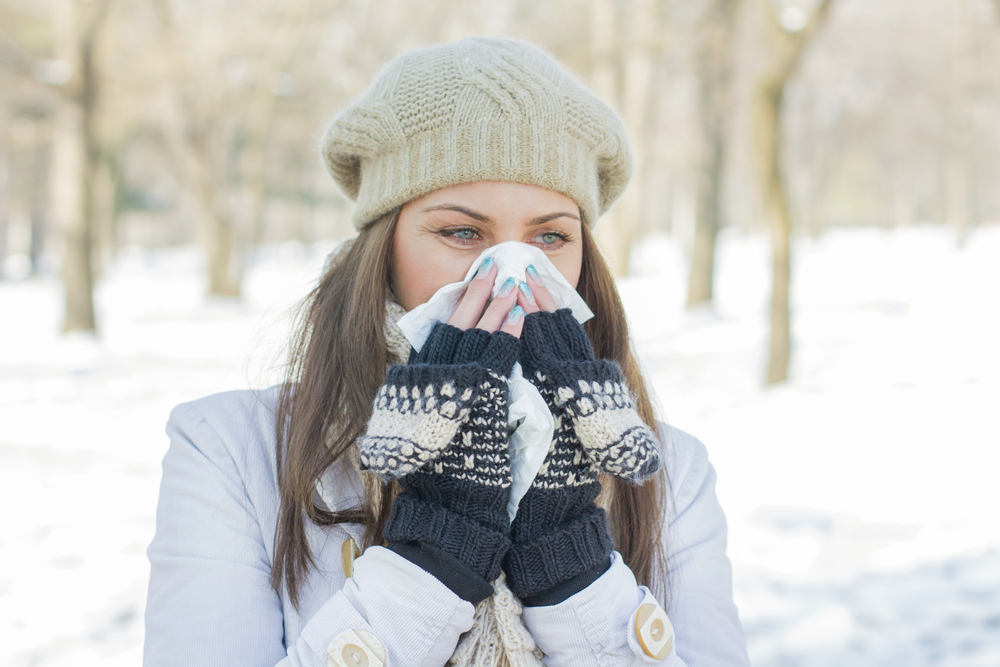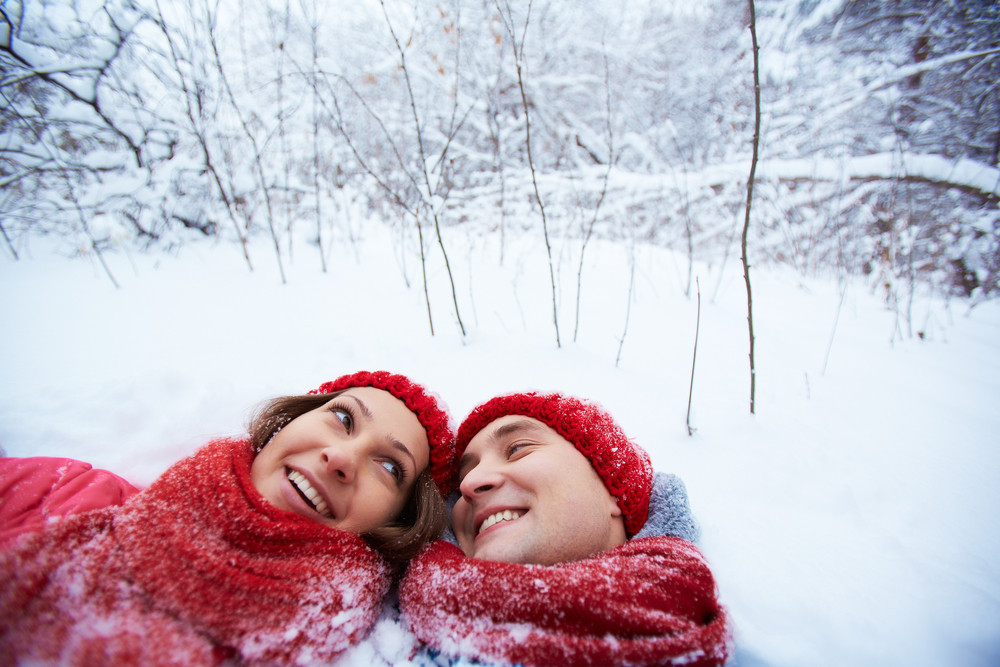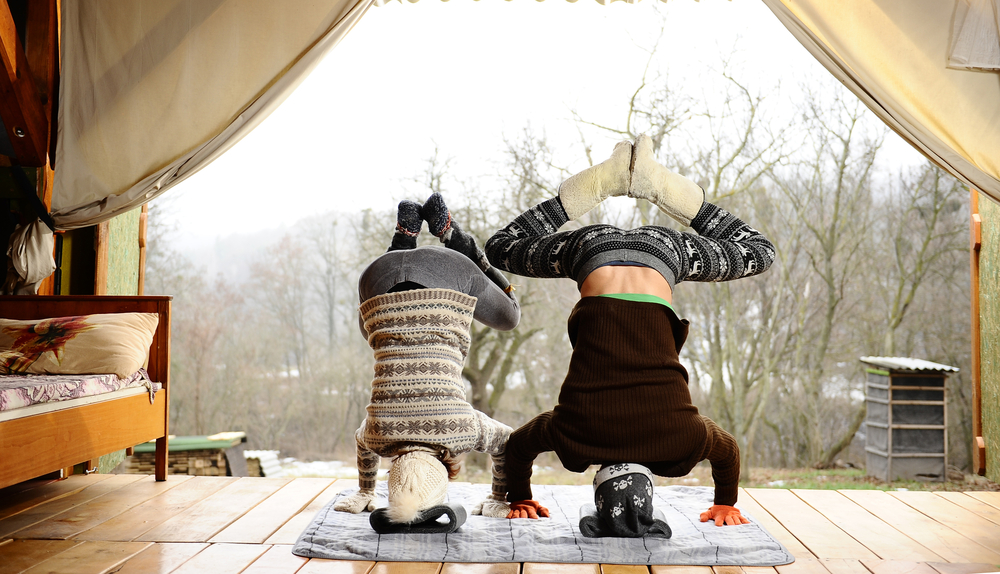Every season has its popular beliefs. Winter has beliefs that are all its own. Which ones are true? The FizzUp trainer is debunking or backing up the most popular beliefs about winter.

False. Here’s a popular belief that stands the test of time! But being exposed to the cold doesn’t make you that sick. The U.S. Department of Health and Human Services confirms that no scientific proof has shown that low temperatures are directly linked to illness. A report published in 2009 from the French Institute for Public Health Surveillance shows that it’s easier for you to get sick in the winter because you have to spend more time indoors. This promotes the spread of germs, which can easily be passed from one person to another. Bruno Lina, director of the virology and human pathology lab at the University of Lyon, confirms that “confinement is a key factor,” which explains the high number of respiratory diseases in the winter. Exposure to the cold weakens your immune system, making it an ideal environment for virus development.
That’s why the cold isn’t directly responsible for illness, but is a sneaking enemy you can ward off with a coat and scarf.
False. The fact is, hot beverages actually do more to refresh you than warm you up. Receptors on your tongue sense the heat and make you body sweat in order to evacuate it. On the other hand, drinking a large amount of cold beverages warms you up because your stomach has to make the effort to bring the liquid up to body temperature (98.6°F or 37°C). This uses energy, which warms you up naturally. In 2001, a study conducted by the American Red Cross Blood Services confirmed these observations. Ten people who gave a blood sample were studied before, during and after having drunk a hot or cold beverage. Those who drank a hot beverage had a blood temperature that was 2.6°F lower.
As you can see, to beat the cold, leave your kettle in the cupboard and get out your water bottle! Staying hydrated is essential when you’re physically active.
True. When exposed to low temperatures, your body implements strategies to warm itself up. To keep your body temperature at 98.6°F or 37°C, it needs to use calories. Canadian researchers showed how the body works against the cold in a study from 2002. Exposure to the cold stimulates your body’s heat production, which in return triggers a higher expenditure of energy and glucose contained in the blood. From this study, they found that stored fat is still the best source of heat production in the body, so you can rely on the cold to help you get rid of excess fat!

False. Even if women often complain about having cold feet or hands during the winter, they react to temperature changes similarly to men. In fact, the Defence and Civil Institute of Environmental Medicine in Toronto studied this phenomenon. For this study, they immersed six women and five men with a similar body size in 64.4°F or 18°C water for 60 minutes. Once the hour was up, the variety of analyses showed that their bodies all had the same reaction to the cold. So, neither sex did better than the other.
False. Besides being harmful to your health, drinking alcohol causes your body temperature to decrease. It actually prevents your body from shivering, a natural reaction to the cold that enables your body to warm itself up. By drinking alcohol, you feel like you’re warming up because of the dilated blood vessels under your skin. This feeling is only temporary and makes it harder for your body to cope with the cold.
False. Today’s living conditions mean that people don’t have to struggle with the same problems their ancestors did in the past. Winter depression can be the cause of an intense craving for food, especially foods that are high in sugar or fat. Eating more in the winter is a process conditioned by habits and behaviors that we don’t have to live by anymore. To find out more about this topic, check out the article Do You Need to Eat More in the Winter?.

False. Many studies have shown the same result: there’s an ideal temperature your muscles should be at when exercising for optimal performance, ranging from 87.8°F to 98.6°F or 31°C to 37°C. That’s why working out in a colder environment can be beneficial, because the cold notably make you feel muscle pain less quickly. The pain that you can feel during intense exercise comes from lactic acid that your body produces. The cold slows down its production, enabling you to continue your fitness training more easily. By exercising in a room that’s just a few degrees colder, doing your FizzUp workout will be a piece of cake!
True. Wind, rain and snow are all factors that can make you run for shelter, where you find yourself in the perfect environment to chat and come together with others. A study conducted by Newcastle University in the United Kingdom also showed that during the winter, people tend to call their friends and family more. That’s one way to feel less isolated during one of the “unfriendlier” seasons. The holidays also a good reason to get together with your loved ones for festive occasions. Thanks, winter!
Now you can stop falling for those popular beliefs about winter that are swirling around you. Impress your friends and family when you give them concrete explanations to these rumors and stop feeling like a never-ending victim of winter, cold after cold. So, are you surprised by what was hiding behind these popular beliefs about winter?
Join the 7 million users already registered on FizzUp
Join us